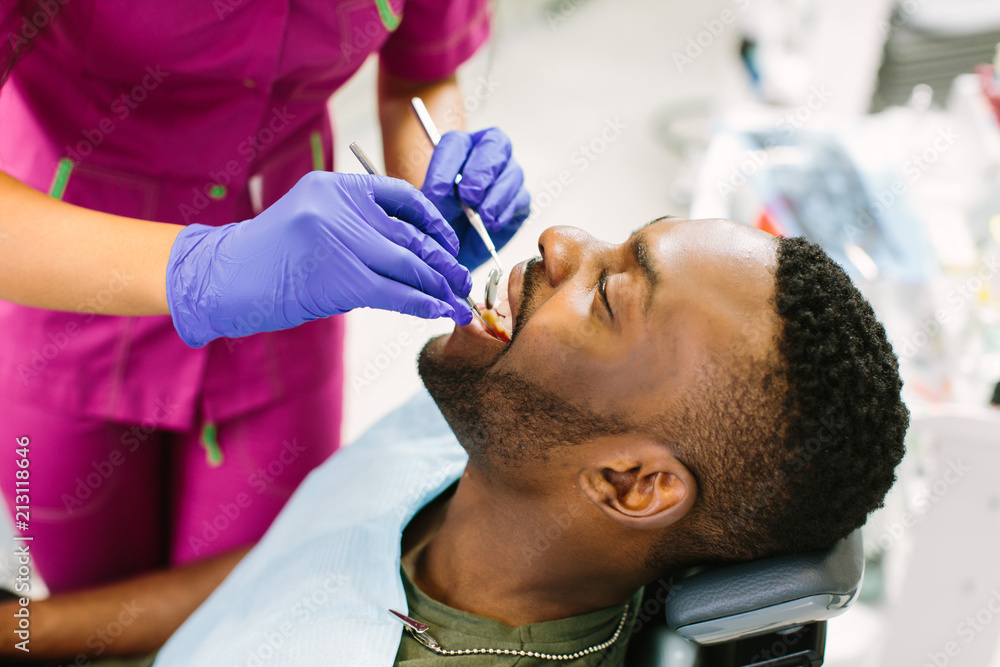Common Concerns About Dental Veneers Responded To
Dental veneers have come to be a significantly in-demand option for those looking to enhance their smiles, yet many people remain uncertain concerning numerous elements of their usage. Key concerns frequently arise regarding the application process, long life, and potential risks associated with these cosmetic improvements. The distinction in between porcelain and composite veneers can considerably influence one's option. As we discover these common inquiries, it becomes important to consider not just the benefits yet likewise the ramifications of choosing dental veneers in search of an extra certain appearance. What factors should one evaluate prior to making such a decision?
What Are Dental Veneers?
Dental veneers are thin, tailor-made shells crafted from porcelain or composite resin that are developed to cover the front surface of teeth. These oral prosthetics offer both visual and useful functions, offering an option for different dental imperfections, including staining, chips, voids, and imbalance. By sticking to the teeth, veneers can significantly improve the overall appearance of a smile, developing a much more appealing and uniform appearance.
Porcelain veneers are especially preferred for their natural translucency and discolor resistance, making them an ideal option for people seeking durable outcomes. On the other hand, composite material veneers are typically more economical and can be used in a solitary see, but they might not offer the same resilience as porcelain options.
The decision to go with dental veneers frequently originates from a wish for aesthetic improvement, however people must likewise consider elements such as the durability of the product, upkeep demands, and the possible demand for tooth decrease (Low Cost Veneers). Ultimately, oral veneers stand for a functional and effective service for accomplishing a radiant smile, satisfying private aesthetic needs while advertising self-confidence and self-esteem
How Are Veneers Applied?
The application process for veneers requires mindful planning and accuracy to make sure optimum outcomes. The treatment usually begins with an extensive appointment, where the dental professional examines the person's dental health and wellness, discusses desired outcomes, and identifies the ideal sort of veneers, whether porcelain or composite resin.
Once the therapy plan is developed, the dental expert prepares the teeth by removing a thin layer of enamel, generally concerning 0.5 mm to 1 mm, to accommodate the veneer. This action is crucial as it makes sure a proper fit and protects against the veneers from showing up large - Veneers. After prep work, impressions of the teeth are required to produce custom-made veneers that match the individual's one-of-a-kind dental framework and visual preferences
While the long-term veneers are being made in an oral lab, temporary veneers may be put to safeguard the prepared teeth. When the long-term veneers are prepared, the dentist will carefully bond them to the teeth using a strong dental adhesive.
What Are the Conveniences?

Moreover, veneers are understood for their durability and resistance to try this out staining contrasted to natural teeth. Made from high-grade materials such as porcelain or composite resin, they can maintain their appearance for years with proper treatment. This long life makes them a sensible investment in one's dental appearance.
In addition to visual improvements, veneers can also add to enhanced oral health. By covering damaged or damaged teeth, they can provide added support and security, helping to stop further decay or damage. This protective element can lower the demand for more comprehensive oral procedures in the future.

Just How Long Do They Last?
With correct treatment and maintenance, oral veneers can last anywhere from 10 to 15 years, making them a long-lasting service for improving one's smile. The long life of veneers largely depends on the material utilized, the top quality of the preliminary placement, and the client's adherence to dental health methods.
Porcelain veneers are understood for their resilience and resistance to staining, generally lasting closer to the 15-year mark when cared for properly. Composite veneers, while more affordable, might need substitute sooner, frequently within 5 to one decade as a result of their susceptibility to wear and staining.

Furthermore, wearing a mouthguard during sporting activities or nighttime can supply additional defense. Ultimately, while veneers offer a substantial aesthetic enhancement, their durability is dramatically influenced by the commitment to appropriate dental treatment and normal assessments with a dental specialist.
Exist Any Threats?
Taking into consideration the transformative impacts of oral veneers, it's vital to acknowledge the possible dangers associated with their application. While veneers can improve the look of teeth, the procedure entails the elimination of a thin layer of enamel, which can increase tooth sensitivity and vulnerability to decay.
One considerable risk is the opportunity of incorrect positioning or fitting, resulting in pain, bite imbalance, or perhaps damages to the underlying tooth framework. Additionally, if the veneers are not kept appropriately, they can come to be stained or damaged in time, demanding substitute.
Clients might likewise experience allergies to the materials used in the veneers, especially if they have level of sensitivities to particular oral compounds. Additionally, while veneers are long lasting, they are not informative post indestructible; extreme pressure from grinding or squeezing can result in cracks.
It is crucial for clients to talk to a qualified dental specialist to evaluate their specific threats and to adhere to aftercare instructions vigilantly. By comprehending these risks, people can make enlightened choices regarding their oral veneer therapy and make certain the longevity and success of their enhancements.
Conclusion
In summary, dental veneers stand for a useful cosmetic solution for boosting smiles, with considerations regarding their application, benefits, durability, and connected threats. Their effectiveness is influenced by factors such as the selection of product, with porcelain offering exceptional durability contrasted to composite alternatives. Appropriate care and maintenance are crucial to take full advantage of the lifespan of veneers. Eventually, educated decision-making regarding dental veneers can result in learn this here now adequate visual results and enhanced dental health.
Dental veneers are slim, customized shells crafted from porcelain or composite resin that are developed to cover the front surface of teeth. After preparation, impressions of the teeth are taken to develop customized veneers that match the patient's unique oral structure and aesthetic choices.
While the long-term veneers are being made in an oral lab, short-lived veneers may be put to protect the ready teeth. As soon as the long-term veneers are ready, the dental professional will meticulously bond them to the teeth using a strong oral adhesive. Inevitably, educated decision-making pertaining to dental veneers can lead to sufficient visual results and enhanced dental health.